Time-Slips and Body Hopping: Eight Great Novels of Time Travel
James Goodhand Recommends Kate Atkinson, Toshikazu Kawaguchi, Georgi Gospodinov, and More
What is it about time travel stories? Perhaps our fascination with them comes from exploring that mysterious place where science meets human experience. Or maybe they allow us to fantasize about seizing control of that one thing that rules our lives, that sets our decisions in stone, that gives us everything only to take it away again—the passage of time. Whatever the reason, our obsession with such tales is going nowhere.
In my forthcoming novel The Day Tripper, I ask: What if you woke up each morning in a different, random day of your life? This is the situation twenty-year-old Alex Dean finds himself in after a perfect evening in 1995 ends in disaster. Doomed to never knowing where—or rather when—each new dawn will take him, he must navigate his way through the years and piece together what happened after that fateful night. He’ll find that his decisions can have untold impact, even in a life lived out of order.
It’s a different spin on the time travel story, inspired in no small way by my favorite novels of the genre. The following are, to my mind, eight of the best:
*
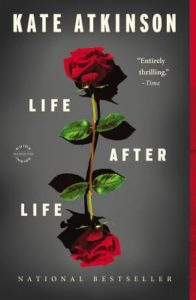
Life After Life by Kate Atkinson
Ursula Todd is born in 1910 and dies within minutes. Chapter two and her life begins once again. This time she survives till the age of four when she’s swept away on a family holiday. We follow Ursula’s progress across the twentieth century, as inevitably disasters befall her, be it Spanish flu or German bombers or a slippery roof at home. Each time her life begins again, she has an inkling of what’s gone before, and a sense that this is happening to her for a reason (which it is, but I won’t spoil it here).
It’s a book that is most remarkable as a study in how different our lives can turn out but for a few twists of fate. As with many of the best speculative novels, Life After Life takes a big concept, and uses it as a lens to focus in on the vagaries of the human condition.
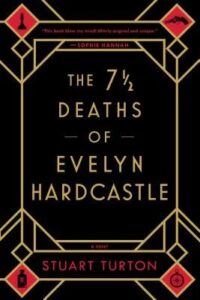
The 7 1/2 Deaths of Evelyn Hardcastle by Stuart Turton
An Agatha Christie style murder mystery with a body-hopping, time-looping sleuth, this novel is a work of genre-crossing genius. Set in a stately home in the 1920s, the story sees the titular character shot at midnight during her own birthday party. Our reluctant detective Aiden Bishop wakes each morning in the body of a different party guest, each new perspective lending him another chance to stop the murder before it happens. A quite stunning concept, but Turton’s brilliance doesn’t end there. Since this novel first published in 2018, the golden age murder mystery had enjoyed a resurgence. But there’s no misplaced nostalgia on show here. Instead the author has a clear-eyed view of this era’s flaws; with wit redolent of Roald Dahl, he pokes fun at his characters’ greed and fecklessness and misuse of their privilege.
A clever, fun, and complex book. Just don’t try and work out who the murderer is, it’ll drive you nuts!
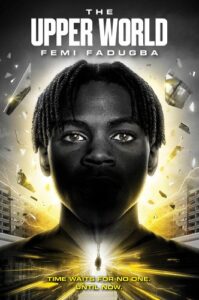
The Upper World by Femi Fadugba
Set in Peckham, South London, this young-adult novel expertly blends urban realism with some serious science. When sixteen-year-old Esso has a run-in with a Range Rover on his way to school, he experiences a horrifying vision of a shooting that coming evening. In a separate timeline, a much older Esso (now a doctor, and now blind) is mentoring Rhia, a girl whose mother was tragically killed many years earlier. The two stories intersect with a thrilling sense of time running out.
A physicist by profession, this novel was born of Fadugba’s desire to bring Einstein’s theories to life, something he achieves in a way that never feels dumbed down. Along with the tight plot, the reader gets to enjoy discussions about, for example, the idea that the faster we move through 3D space, the slower we move through time—conversations conducted in an authentic South London vernacular reminiscent of Top Boy. It’s deeply clever, enthralling stuff.
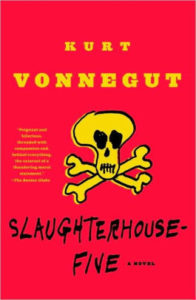
Slaughterhouse 5 by Kurt Vonnegut
As well as imparting a thousand nuggets of wisdom that are still being shared daily on social media, Kurt Vonnegut also wrote some books. None embody his trademark wit and inventiveness better than his 1969 novel, Slaughterhouse 5. The main character Billy Pilgrim becomes unstuck in time. An American soldier, he finds himself on a whistle-stop tour of the twentieth century’s conflicts. To my knowledge, it’s the first example of block universe theory being used as a literary device. Informed by the author’s own spell in a German prisoner of war camp, this is a vehemently anti-war novel. In fact, it originally published with the subtitle “The Children’s Crusade, A Duty-dance with Death,” a none-too-subtle dig at war’s expectation that the young sacrifice themselves for the interests of their elders.
Funny, profound and edgy, I adore this book. And if the quality of a novel can be judged from how often it’s banned in schools, Slaughterhouse 5 is among the all time greats.
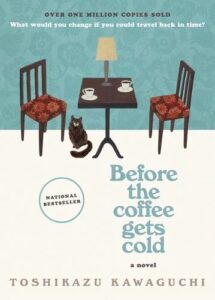
Before the Coffee Gets Cold by Toshikazu Kawaguchi
This quirky novel tells the story of a Japanese basement café, in which patrons are able to travel through time. They have to sit in one particular seat though, and nothing they do will change the present, and they must wait for the ghost who usually occupies the seat to go to the toilet. Oh, and they can only time travel for however long it takes for their coffee to go cold. The story may be obsessed with its own rules, but the author pays no such heed to the accepted rules of novel writing. The book takes the form of four short stories of time travel, interspersed by the goings-on amongst the café staff which gives it a cozy, soap-opera feel.
It’s a quick and touching read. However, should you have a thirst for more, there have since been three sequels with another due later this year.
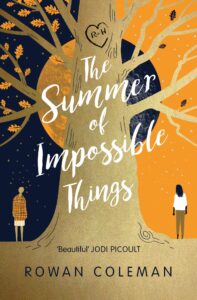
The Summer of Impossible Things by Rowan Coleman
In this fine example of the timeslip novel, British sisters Luna and Pia travel to their mother’s childhood home in Brooklyn to settle her affairs after her death. It soon becomes clear that something terrible happened to their mother here. Luna finds herself slipping between the present day and summer 1977 where she becomes friends with her young mother. She is soon on a mission to reverse her Mum’s awful fate, even though it risks her own very existence in the future.
It may touch on some dark themes, but the love story that smolders throughout against the backdrop of New York’s Saturday Night Fever era makes this a fabulously evocative, uplifting read.
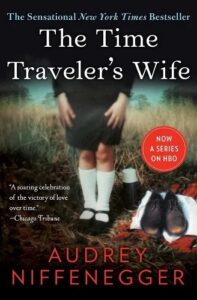
The Time Traveller’s Wife by Audrey Niffenegger
“Why is love intensified by absence?” So asks our female protagonist Clare Abshire, barely three paragraphs in. It’s a sentence that neatly encapsulates the soul of this modern classic. Because this is not a story about time-travel so much as one about love. Sure, Clare’s husband Henry is prone to disappearing without warning, doomed to land somewhere else in time, naked and penniless. But this affliction allows Niffenegger to construct a love story that we can all relate to: the longing, that unsettling feeling that we aren’t on the same page as our beloved, the sense of being brought together by some fate or higher power.
It’s difficult to say anything about this absolute blockbuster that’s not already been said. Except perhaps to pass on my recent discovery that there’s a sequel on the way. It’s called The Other Husband, and I can’t wait!
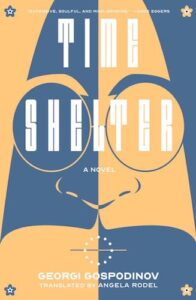
Time Shelter by Georgi Gospodinov
Ok, so I’m taking a liberty here with the definition of time travel, because this 2023 International Booker winner has no sci-fi element to it. This is the story of a Bulgarian therapist who founds a clinic for Alzheimer’s sufferers consisting of rooms that are perfect recreations of bygone eras, taking the patients back to the surroundings of their youth. It proves so popular that soon perfectly healthy people are checking themselves in for a dose of nostalgia. Before long, all of Europe is going crazy for the past with each country holding a referendum on which decade they want to return to.
It’s time travel meets political satire, though in this era of Brexit and of calls to make our countries Great Again, it’s hardly a whimsical read.
__________________________________
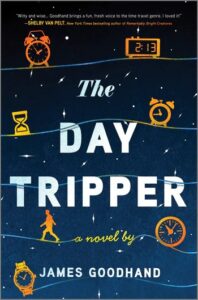
The Day Tripper by James Goodhand is available from MIRA Books, an imprint of HarperCollins Publishers.




















